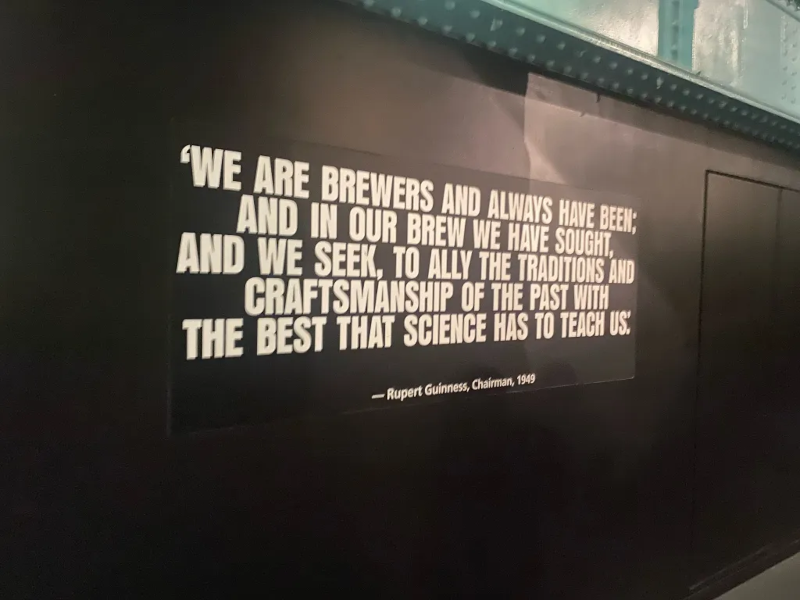This article was originally published on From The Green Notebook in June 2024. It is republished here with FTGN permission, as part of an article exchange between FTGN and The Cove.
Good culture statements aren't easy to find.
I know I struggled to capture the essence of the culture I wanted to create as a commander in a concise statement, and I still did not get it right.
Often, leaders gravitate towards statements full of grandiose language, buzzwords, or industry clichés. As a result, people don’t connect to them. These hollow statements are used at newcomer orientation briefs, but aren’t adopted by anyone.
Recently, I visited the Guinness Storehouse in Dublin, Ireland, and saw pure gold written on the wall. It was a quote from Rupert Guinness, the company’s chairman in 1949:
“We are brewers and always have been; and in our brewery, we have sought, and we seek, to ally the traditions and craftsmanship of the past with the best that science has to teach us.”
Here’s why I love this quote so much: it addresses both identity and behavior.

In his book, This is Marketing, Seth Godin explains that we understand culture through the lens of “People like us, do things like this.” He writes, “For most of us, from the first day we are able to remember until the last day we breathe, our actions are primarily driven by one question: ‘Do people like me do things like this?'”
In Guinness’ statement, he tells us that their employees are brewers—this is the identity when you join Guinness. He then goes on to say they remain grounded in tradition while also keeping an eye on innovation, always striving to improve.
It’s a simple yet profound statement. If I worked at Guinness, this statement would give me my identity and guide my behaviors within the company.
During my time commanding a cavalry squadron in Europe, whenever we encountered a challenge, I always reminded our team, “People like us, do things like this.” It served as a reminder that we do not shy away from challenges; instead, we face them head-on, because that is what people like us do.
Culture statements do not need to be overly complicated or filled with buzzwords. They simply need to help answer the important question we all ask ourselves: “Do people like me do things like this?”










"our actions are primarily driven by one question: ‘Do people like me do things like this?'" - we naturally want to be people whose actions align in some coherent way